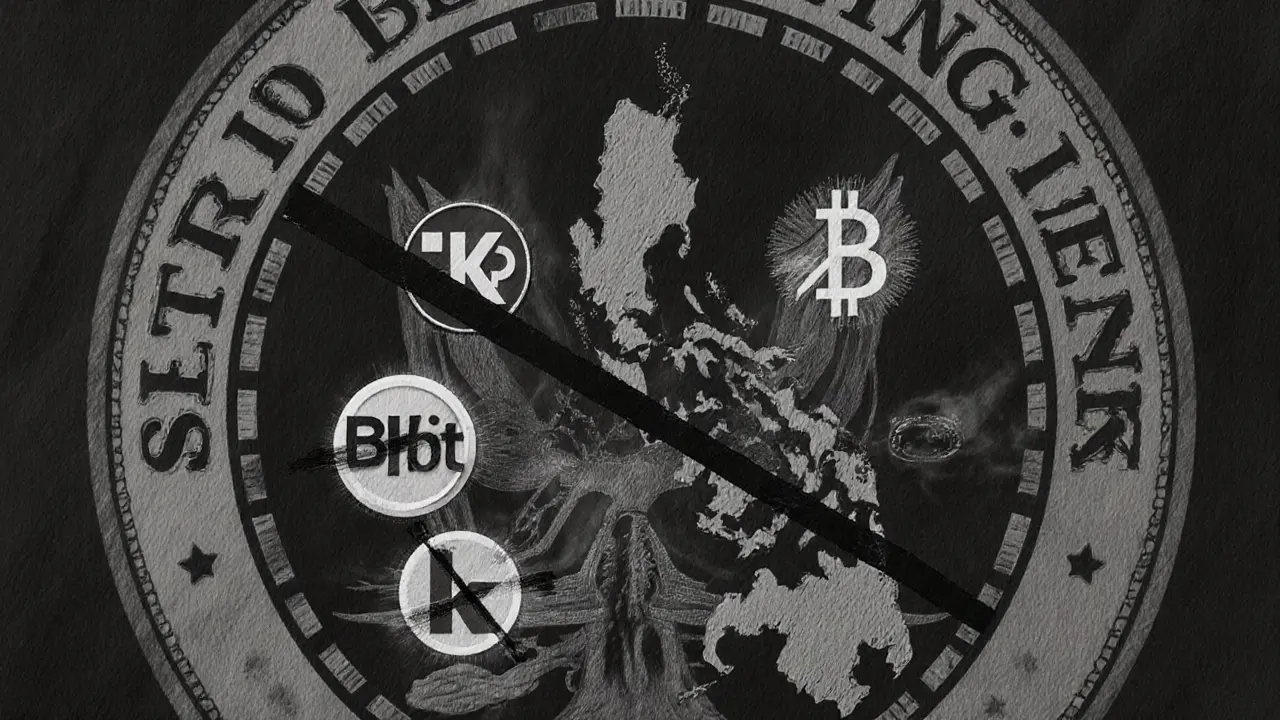The Philippines SEC blacklisted 15 major crypto exchanges in 2025 for operating without licenses. Learn which platforms are banned, why they were blocked, and what options Filipinos have now.
OKX Blocked Philippines: What Happened and What It Means for Crypto Users
When OKX, a major global cryptocurrency exchange that supports spot trading, derivatives, and staking across multiple blockchains, was blocked in the Philippines in early 2025, it wasn’t just a technical outage—it was a regulatory earthquake. The Bangko Sentral ng Pilipinas (BSP) issued a formal warning, citing unlicensed operations and failure to comply with anti-money laundering rules. For thousands of Filipino traders who used OKX for low-fee trading and access to global tokens, the sudden block meant frozen funds, lost access to staking rewards, and confusion about where to turn next. This wasn’t an isolated case. It was part of a broader crackdown on offshore exchanges that refused to register under Philippine law.
The Philippines crypto regulation, a framework requiring all digital asset platforms to obtain a license from the BSP before serving local users has been tightening since 2023. Platforms like Binance and Bybit had already been flagged, but OKX’s block was the first to trigger mass user displacement. Why? Because OKX had quietly grown to be one of the top three exchanges used by Filipinos, especially for trading stablecoins like USDT and USDC. Many used it to hedge against peso volatility or send remittances via crypto. When the block hit, users didn’t just lose access—they lost trust. Some tried to use VPNs, but that only made things riskier. Others scrambled to move funds to licensed local platforms like Coins.ph or PDAX, but those couldn’t handle the volume. The result? A wave of abandoned wallets and lost tokens.
This situation highlights a deeper issue: crypto exchange ban, a growing global trend where governments restrict access to foreign platforms to maintain control over financial flows. In the Philippines, the goal wasn’t to stop crypto—it was to stop unregulated crypto. The BSP doesn’t oppose innovation; it demands accountability. Exchanges that don’t verify users, report transactions, or freeze suspicious accounts are seen as threats to financial stability. OKX never fully complied. Even after multiple warnings, it kept operating without a local license. That made it a target.
If you’re in the Philippines and you used OKX, you’re not alone. Thousands of users are still trying to recover assets or find safe alternatives. The posts below cover real cases: how people lost money, how scams popped up pretending to help with withdrawals, and which exchanges actually got licensed and are still running. You’ll also find reviews of platforms that replaced OKX, breakdowns of the BSP’s rules, and tips to avoid getting blocked again. This isn’t just about one exchange being shut down. It’s about what happens when regulation catches up to the wild west of crypto—and what you need to do to stay safe when it does.

